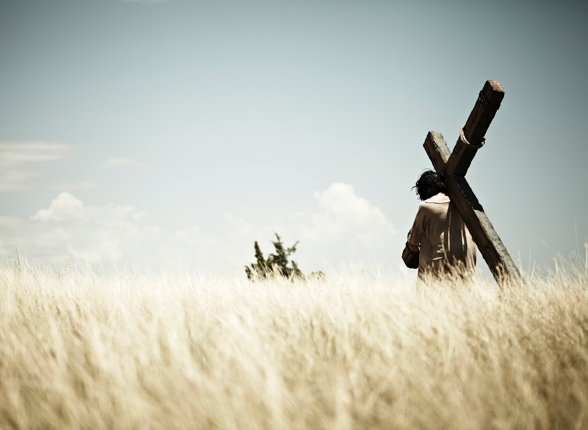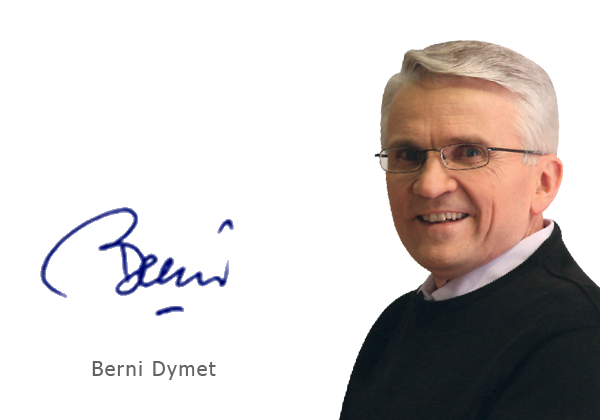Episode 1. The Life Coach

Listen to the radio broadcast
Download audio file
Life coaches are all the rage at the moment. Business mentorship. Financial. Personal. Spiritual. People have finally figured out their missing something. Join Berni Dymet as he looks at life from A …
Life coaches are all the rage at the moment. Business mentorship. Financial. Personal. Spiritual. People have finally figured out that they’re missing something.
It is so good to be able to join you again this week; I love the fresh feeling at the start of a week. Now have you ever known someone for a long time? A work colleague, a so called friend, even a family member, and then you find out something about them or they do something that surprises you and you think to yourself, “I really don’t know you at all.”
I was having lunch with a friend the other week, a man I’ve known for twenty years, and he mentioned he’d been married and divorced as a young man. It blew me away. I thought I really knew him. That’s how I felt when I started reading about this Jesus a few year’s back. I had a picture in my mind, I thought I had him pegged, but then you look at the things He said, the things He did, and it certainly shattered my stain glass image of Him.
Life Coach’s they are the trendy thing aren’t they? Often you see them now advertising to be business mentors, as if there aren’t enough experienced men in business to mentor the younger folk. The personal trainer I often see as I go for my early morning walks around the park where I live. There are people who engage personal trainers to help them to get fit. There are financial coaches.
What motives this problem, why have life coaches become so popular all of a sudden? My hunch is it is our drive to succeed. I have a friend who runs a mentorship group called, “The Achievers Group” and I get a fortnightly email from him called, “The Vitamin Pill”. Now they’re great insight and they’re very, very good. I guess we have these images of success that we try to measure up to and as we do we sense that we’re missing something, we sense that we missed out on something.
You know as we grow up there are various inputs to our life in that process where you and I matured. Our parents mostly, are a major influence; school and what we learn from the teachers and in the class room; friends particularly once we become teenagers that whole peer pressure thing; television in my upbringing and in my children’s upbringing has had an enormous impact on how we see the world. They’re the key inputs into our life, and so often the thing that we discover is missing as we grow up, is how to live.
I mean, how to be effective. Personal discipline, finding direction for your life, developing those interpersonal skills that are so necessary, dealing with our spirituality. A few months ago back in October or November last year I did a series over a couple of weeks called “The stuff they forgot to teach us when we were growing up.” So often it’s the absence of those basic skills that ruins our lives. You know we have knee jerk reactions, we struggle in dealing with uncertainty, we struggle in knowing how to relate to difficult people.
In so many societies that important life stuff is just left to chance. Church, religion, well to so many people that stuff is so irrelevant, that bunch of rules just doesn’t seem to fit with today’s life, with what’s going on here and now. Well as they say “there’s nothing new under the sun”, and in a sense it was exactly the same thing in the First Century AD. Religion was an intrinsic part of the culture, probably in the same way that secular humanism is for us today.
I mean secular humanism is that whole thing, let’s do good to other people, and the environment, and all those other things, there are different flavours of it but it denies any sort of God it’s permeated our secular mindset and it’s permeated our psyche. Well in the same way the Jewish religion in Israel at least, had permeated the psyche of the people that lived there in the first century.
But just as today, you know as we look at secular humanism, that just somehow the spirit of the times doesn’t ring true. For most of us we say “there must be something more.” Just as we feel that about secular humanism, it turns out in the first century, religion was a bunch of rules and it didn’t ring true for the people, they wanted something more, something relevant to life. And when Jesus began his public ministry aged around thirty, he began speaking.
He’d get up at the synagogue and very soon he was speaking to huge crowds I mean four thousand, five thousand, six thousand people. Now we think today ok four or five thousand, that’s a big hall maybe a small stadium, that’s not that big a number. But back then when Jesus was talking in country areas with small villages, and even Jerusalem only had a few thousand, you know, ten, fifteen, twenty, twenty-five thousand people, that order of population. Crowds of four and five thousand were absolutely huge.
So Jesus began speaking and started drawing these huge crowds. Remember this is not London, it’s not New York, it’s not Sydney, it is villages and towns. Why? Why did so many people flock to Him in a way that for instance today, they wouldn’t flock to a church? Why was that? Because He spoke with a ring of authenticity, it’s what it says, people were amazed because he spoke with an authority that they just didn’t hear from their religious leaders.
There were stories, there were parables about seeds and lamps and bushels and farmers and all this sort of stuff that they could relate to. There’s the parable of the sower, we talked about that last week where a farmer was throwing seed, and He told these stories and people flocked and they didn’t always understand what he was talking about, they didn’t always get it straight away, what Jesus was doing, but He inspired them somehow.
You talk about faith, He said, if you’ve got faith the size of a mustard seed you can say to this mountain, “throw yourself into the sea, and it will be done for you.” He knew how to inspire, a mustard seed was the smallest seed that was known to human kind at the time and He said, all you need is that tiny bit of faith and you can move mountains. He talked about the Kingdom of God, he said that’s like a mustard seed, it’s the smallest of seeds but it grows into this huge tree and it’s a tree where birds build their nests and you think, “man they’re a big shady tree, maybe the Kingdom of God is for me, maybe Jesus’ talking about me.”
He was so often confusing, he was so often confounding. And as Jesus unpacks the issues of life, it’s so often the way it is because we see things one way and yet when we let His words, when we let His being, when we let His spirit minister to our spirit, minister to our hearts, when we hear that voice and those words and the wisdom that turn our world upside down.
It’s not simple, it’s not straight forward to learn. We need to explore it with our hearts, and yet when the penny drops, when you read something that Jesus said, and we can in the four Gospels, Matthew, Mark, Luke and John, the first four books of the New Testament. And you read about what He did, what He said and how He behaved and the penny drops.
It is so profound, it is so life changing, so deep. You know this gentle, kind Jesus who cared about the flotsam and jetsam of society, who was like a lamb and yet he raged. He was powerful and scathing about the religious hypocrites, he was wild like a lion. He defies being put into a box, He defies definition and He told stories like no one else I know.
It blows our preconceptions of life when we listen to Jesus, this Jesus who opened up life, who unpacked life issues. I challenge you to read just a few chapters of one of the gospels, Matthew, Mark, Luke or John. If you don’t have a Bible go on line www.biblegateway.com you can read all of the Bible in more translations than you can image.
Let me ask you, “How’s your life? Are you looking for a life coach, someone that can unpack the real issues?” Well … what about Jesus.










Comments